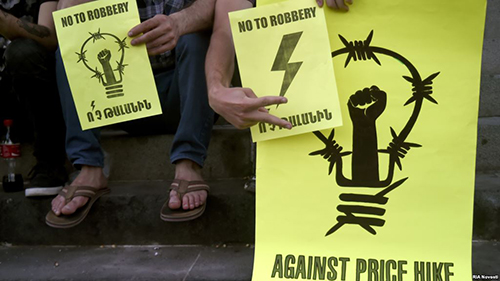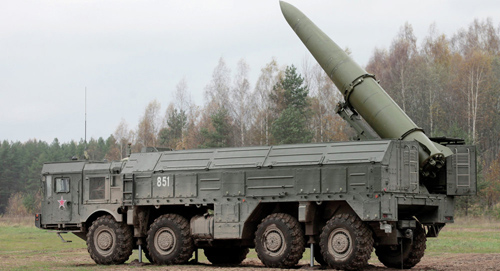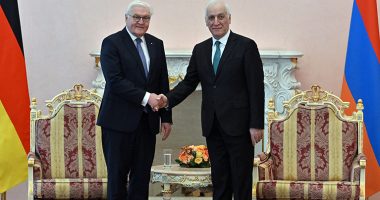MOSCOW (RFE/RL) — The Russian owner of Armenia’s power distribution network has blamed Armenian state regulators for its massive financial losses, saying that electricity prices in the country should have risen faster over the past decade.
“The long-running losses incurred by the Electric Networks of Armenia (ENA) closed joint-stock company result from the existing system of [energy] tariff regulation and rules for the functioning of the energy market in the Republic of Armenia,” Boris Kovalchuk, the chairman of the Inter RAO group, told the Tass news agency late on Tuesday.
Kovalchuk claimed that the ENA has paid Armenian power plants more for their electricity than it was supposed to without receiving a corresponding “compensation from consumers.” He said the “insufficient increase in tariffs in the past 11 years” was compounded by last year’s longer-than-anticipated stoppage of the Metsamor nuclear plant and decreased output by Armenian hydroelectric facilities.
All this has translated into an ENA revenue shortfall of 37 billion drams ($78 million), Kovalchuk said, adding that Inter RAO’s Armenian subsidiary is no longer able to cover its losses with borrowing and is now teetering on the brink of financial collapse.
The ENA owes over $225 million to Armenian commercial banks and power plants. Its Russian chief executive, Yevgeny Bibin, similarly blamed Armenia’s Public Services Regulatory Commission (PRSC) for the company’s troubles last month after asking it to raise the electricity prices by as much as 40 percent.
The PSRC chairman, Robert Nazarian, angrily rejected Bibin’s claims, saying that the company’s debts have resulted, in large measure, from poor management. The PSRC went on to raise the tariffs by more than 17 percent, a move that triggered mass protests in Yerevan and other parts of the country.
The daytime tariff for Armenian households thus reached 49 drams (over 10 U.S. cents) per kilowatt/hour. It stood at just 25 drams per kilowatt/hours in 2009.
A senior PSRC official, Garegin Baghramian, on Wednesday dismissed Kovalchuk’s “subjective opinion.” He faulted the Inter RAO boss for not acknowledging that the ENA’s operational losses have been disproportionately high.
Vahagn Khachatrian, an economist representing the opposition Armenian National Congress (HAK), said both the Armenian regulators and the ENA management are responsible for the existing state of affairs in the energy sector. In particular, he said, the regulators have turned a blind eye to what many in Armenia see as widespread corruption within the ENA.
The HAK’s parliamentary faction said on Tuesday that it will petition Armenian prosecutors to investigate financial irregularities committed by senior ENA executives. It claimed to possess evidence of such fraud.










